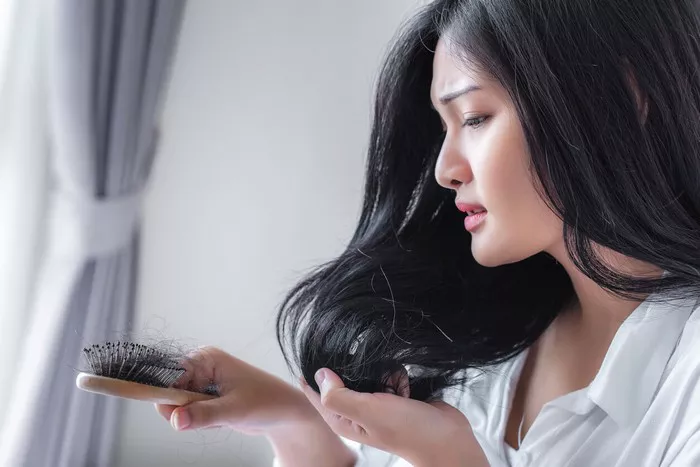Hair loss can be a distressing and emotionally challenging experience, and it can be caused by a variety of factors. One common but often overlooked cause of hair loss is iron deficiency anemia. Anemia occurs when the body lacks enough red blood cells to carry sufficient oxygen to its tissues, and iron plays a crucial role in the production of these red blood cells. This article explores the connection between iron deficiency anemia and hair loss and provides insights into addressing this common condition.
I. The Link Between Iron and Hair Health
Iron is an essential mineral that the body needs for various functions, including the production of hemoglobin, a protein in red blood cells that carries oxygen to different parts of the body. When the body lacks sufficient iron, it can lead to iron deficiency anemia, causing a range of symptoms, one of which is hair loss.
Hair follicles require an adequate supply of oxygen and nutrients to function optimally. When there is insufficient iron in the body, it can affect the blood supply to the hair follicles, leading to weakened and thinning hair. Additionally, iron deficiency can disrupt the normal hair growth cycle, pushing more hair into the shedding phase and resulting in noticeable hair loss.
II. Recognizing the Signs of Iron Deficiency Anemia
Identifying the signs of iron deficiency anemia is crucial for addressing the associated hair loss. Common symptoms of anemia include fatigue, weakness, pale skin, and shortness of breath. However, it’s important to note that some people with iron deficiency anemia may not experience noticeable symptoms until the condition becomes more severe.
In terms of hair loss, individuals with iron deficiency anemia may notice increased shedding, thinning hair, or even bald patches. It’s essential to consult with a healthcare professional if you suspect iron deficiency anemia, as they can perform blood tests to assess your iron levels and recommend an appropriate treatment plan.
III. Addressing Iron Deficiency Anemia and Promoting Hair Growth
Fortunately, iron deficiency anemia is a treatable condition, and addressing it can contribute to the restoration of hair health. Treatment typically involves iron supplementation, either through oral iron supplements or, in more severe cases, intravenous iron therapy. It’s important to follow your healthcare provider’s recommendations regarding the dosage and duration of iron supplementation.
In addition to iron supplementation, adopting a diet rich in iron can support overall health and help prevent the recurrence of iron deficiency anemia. Iron-rich foods include red meat, poultry, fish, lentils, beans, and fortified cereals. Combining iron-rich foods with sources of vitamin C can enhance iron absorption, so consider incorporating citrus fruits, strawberries, and bell peppers into your meals.
IV. FAQs: Understanding Hair Loss and Iron Deficiency Anemia
Q: Can iron deficiency anemia cause permanent hair loss?
A: In most cases, addressing iron deficiency anemia can lead to the restoration of hair health. However, if the condition is left untreated for an extended period, it may contribute to long-term or permanent hair loss. Seeking prompt medical attention is crucial for effective treatment and prevention of further hair loss.
Q: How long does it take for hair to grow back after addressing iron deficiency anemia?
A: The timeline for hair regrowth varies among individuals. Some people may start noticing improvements in hair thickness and volume within a few weeks of addressing iron deficiency anemia, while others may take several months. Consistency in following the prescribed treatment plan and maintaining a balanced diet is key to promoting hair regrowth.
Q: Are there other nutrients that play a role in hair health?
A: Yes, besides iron, several nutrients contribute to healthy hair, including vitamin D, vitamin E, zinc, and omega-3 fatty acids. A well-balanced diet that includes a variety of nutrients is essential for overall hair health. If you have concerns about your nutrient intake, consult with a healthcare professional or a registered dietitian.
Q: Can excessive iron intake lead to hair loss?
A: While iron deficiency can contribute to hair loss, excessive iron intake can also have adverse effects. It’s important to follow your healthcare provider’s recommendations regarding iron supplementation and not self-prescribe iron supplements without proper guidance. Too much iron in the body can lead to toxicity, causing various health issues.
Q: Are there topical treatments for hair loss associated with iron deficiency anemia?
A: While addressing the underlying cause of hair loss, such as iron deficiency anemia, is crucial, there are topical treatments, such as minoxidil, that may help promote hair regrowth. However, it’s essential to consult with a healthcare professional before using any topical treatments and to focus on a comprehensive approach to address both the internal and external factors influencing hair health.
In conclusion, recognizing the connection between iron deficiency anemia and hair loss is the first step in addressing this common condition. If you suspect that iron deficiency may be contributing to your hair loss, consult with a healthcare professional for a thorough evaluation and appropriate treatment. By addressing iron deficiency anemia through supplementation, dietary changes, and overall lifestyle improvements, you can support not only your hair health but also your overall well-being.

